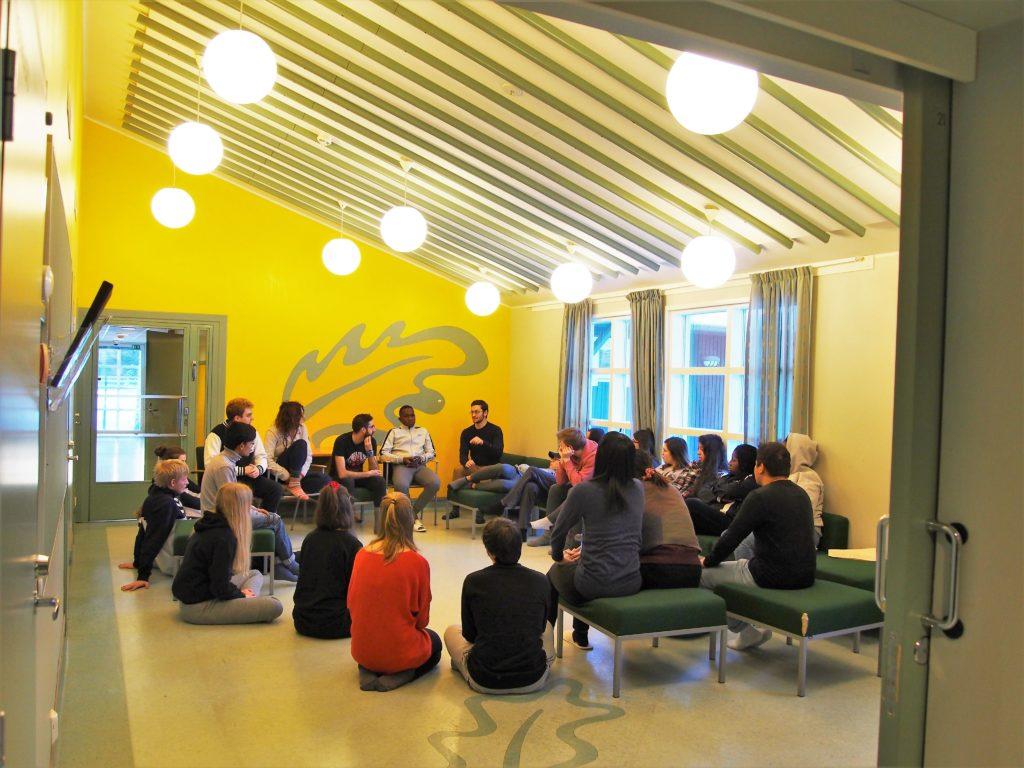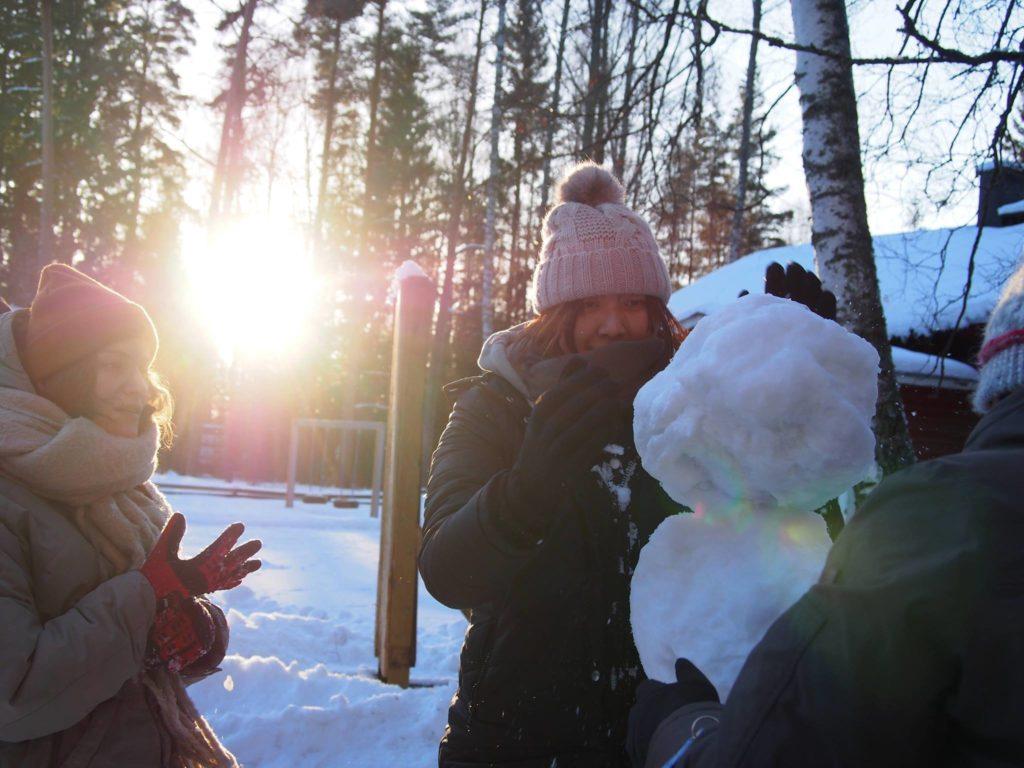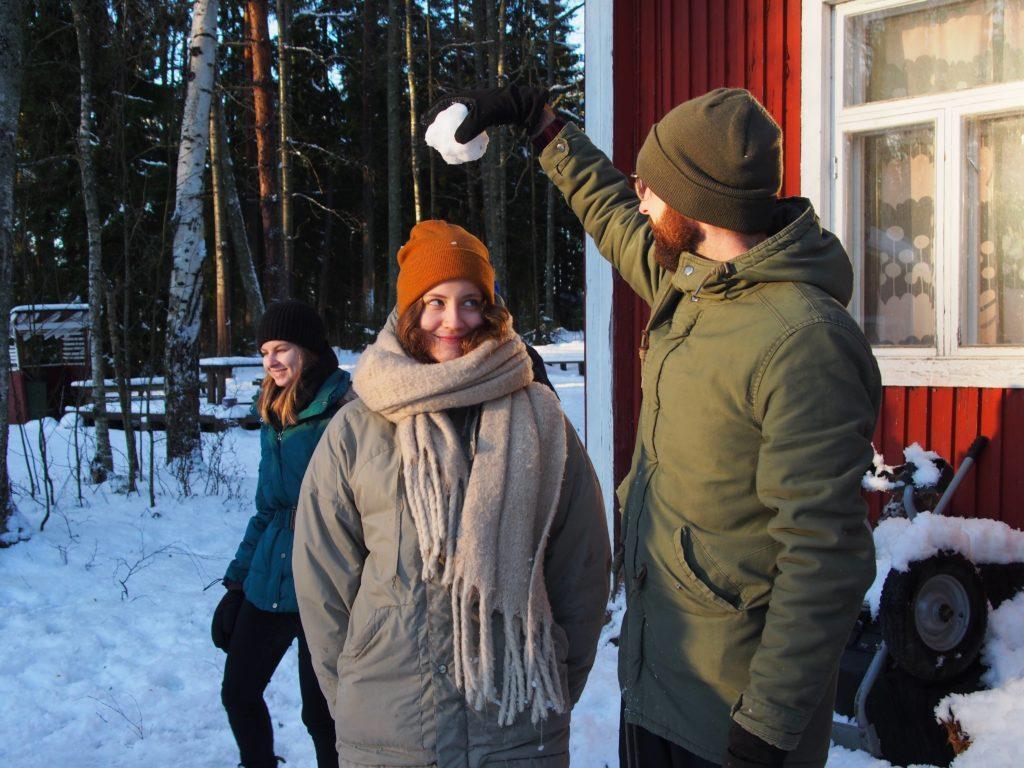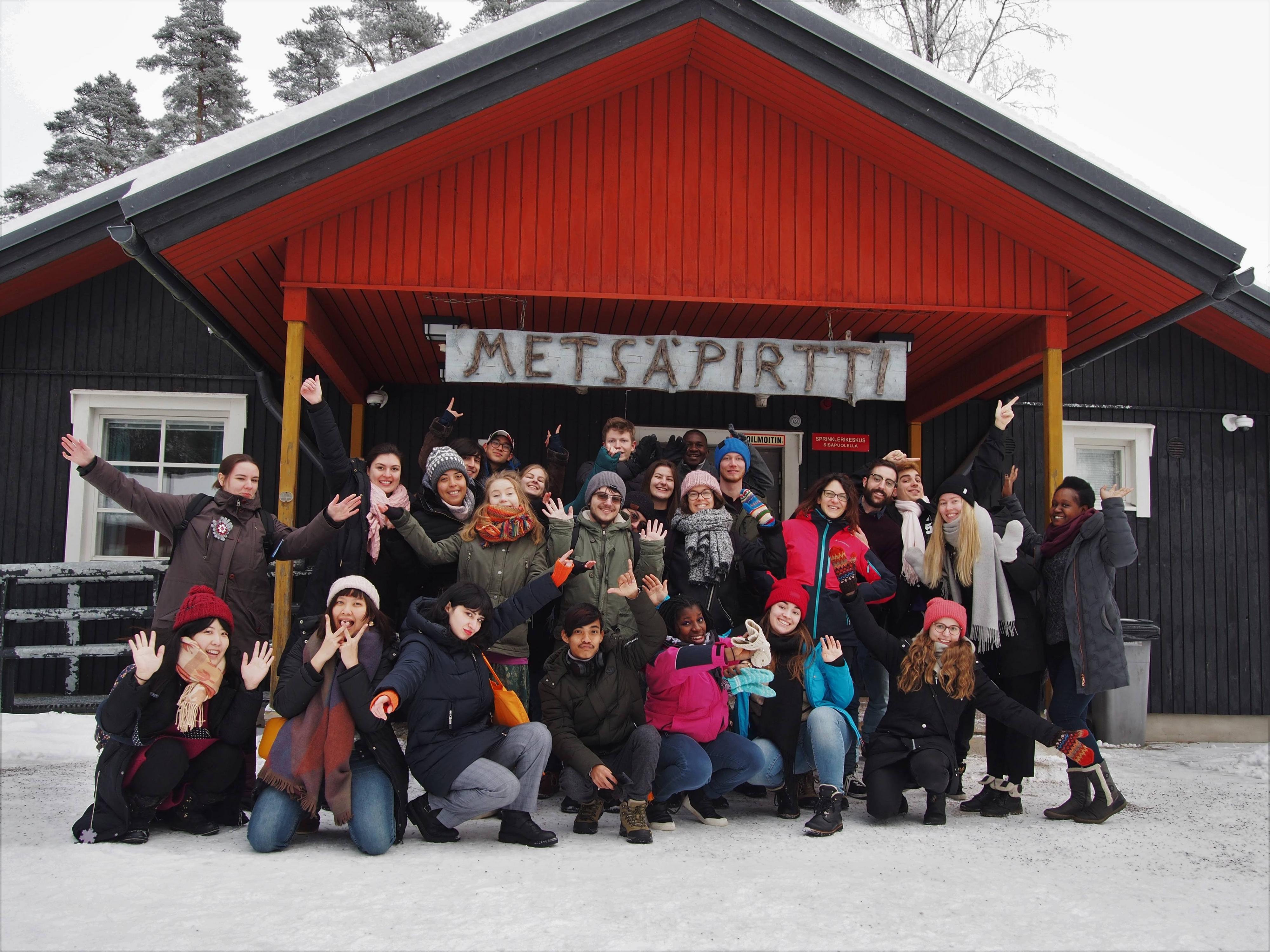In international volunteering the participants learn through daily co-operation. At Maailmanvaihto’s camps the volunteers prepare themselves for it.
It could be an upper secondary school graduate from Oulu, Finland, travelling to assist in a home for the elderly in Nairobi, Kenya. Or a nurse from Tokyo, Japan, making a journey to Finland to volunteer in a kindergarten in Tuusula. International volunteering takes every participant into a new community and society to learn in daily interaction.
”In my volunteering period a few years ago, I coordinated activities at a time bank of services in San José, Costa Rica. In those tasks it truly strike me that one can learn something from each person. That every person you meet always knows more than you about something”, says Silja Lehtonen. In a time bank services are exchanged: by teaching someone to play the guitar one can in return get teaching of Italian, for instance.

Indeed, there is something to learn from someone, and Maailmanvaihto wishes that its volunteering periods of 6–12 months offer for all parties involved learning and widening of perspectives through a respectful, dialogical and inclusive interaction.
Exploring interaction
We enter into interaction with all that we are: our knowledge, expectations and prejudices, for instance. And all that we bring into the interaction affects the way it proceeds. At training camps of Maailmanvaihto the volunteers get to explore their own and others’ starting points as well as the societal phenomena surrounding them.
The participants who head from Finland for ICYE volunteering abroad get together before their departure and after their return. Volunteers who come from abroad to volunteer in Finland meet in the beginning and middle as well as at the end of their volunteering year (only ICYE volunteers).
”Maailmanvaihto and the other ICYE organizations around the world have a mix of people from different countries joining in their activities. This makes them a great platform for discussing about societal matters: getting at once perspectives from individuals from many different societies can widen understanding on the matters”, says Isaura Hernández-Navarro, one of the camp instructors.
“When it comes to issues of inclusion and anti-racism, I feel Maailmanvaihto also bears the responsibility to address them with the international volunteers in the sense that while the volunteers experience in Finland a new place and way of life with fresh eyes, they may be vulnerable to experience discrimination or racism”, she continues.
The latest camp, held in January 2019, was the mid-term meeting of volunteers in Finland. In it the participants explored how different beliefs change over time and how we can advance dialogue between people with different beliefs, for instance. They also reflected upon and discussed about occasions in which they have witnessed discrimination or discriminated someone.
Try to see every point of view. Meet different kinds of people. Ask before you judge. Do not look away but stand up for people who are discriminated. Ask yourself if you unintentionally perform racism. These are examples on the things the volunteers came up with at the camp when they pondered upon which kinds of daily actions they themselves could take against racism while volunteering.
Take a step forward
Let’s zoom into one of the camp activities. At their first camp last August, this season’s volunteers in Finland explored the inequality among people through the exercise “Take a step forward”. It has been published in 2002, as an exercise learned from Els van Mourik and others, in Compass which is a manual on human rights education by the Council of Europe. Along the years it has been published as varying versions in many other contexts, too. Also Maailmanvaihto has adapted the exercise to suit its training camps.
In the exercise, the participants are first each given a role card. Afterwards they go to stand in a line and different statements, such as “You feel yourself safe in the place in which you live”, are read aloud. Those who feel the statement is in line with the life of their role card person, take a step forward. At the end, the participants discuss about their ending positions and about how it was to imagine the life of the role card person.

“It can be difficult to empathize with someone else’s life as well as to notice inequalities among people. This is something that the exercise makes the participants pay attention to”, says Alma Smolander, one of Maailmanvaihto’s participants of the strategic partnership project Standing Together Against Racism in Europe (STAR E) of the ICYE network. Within the project, Maailmanvaihto develops further its activities on advancing inclusion and combating racism.
“The exercise raises a discussion about why it is difficult to empathize with the life of others, especially related to minorities. Why do not we have more information? Where does our information come from and is it reliable? It also brings into focus stereotypes: what if someone can easily imagine many things about a person’s life with just a little information from the role card?”
“Another thing that the exercise highlights is that many factors affect the position of a person and that a same factor can affect individuals differently. For instance, living as a woman can be different depending on one’s sexual orientation. At best the exercise also encourages to think what should change in the society to make it more equal as well as to take action, even small”, she continues.
New openings
Soon Maailmavaihto will get further support for dealing with themes of antiracism and inclusion at the camps from a new handbook on organizing anti-racist trainings. The handbook will be published as a part of the STAR E project (see star-e.icja.de), probably during this year.
Another new opening this year will be defining the principles for a safer space for Maailmanvaihto. By doing this Maailmanvaihto aims at better creating and maintaining policies which make the participants of its training camps and other activities feel themselves safe, both physically and mentally.

But why principles for a safer space instead of a safe space? This is because one set of principles cannot meet the requirements of everyone, and the principles may not always be followed perfectly.
The principles will be used a tool for offering better a supportive learning environment that encourages respect. Maailmanvaihto welcomes all its people to take part in defining the principles, putting them into action as well as revising them if needed.
Text: Minna Räisänen
Photos: Isaura Hernández-Navarro
The photos are from Maailmanvaihto’s latest camp, held in January 2019. 24 volunteers spent four days in a camp center in Tuusula learning together and enjoying the crisp winter weather.
The article has been published in the magazine MaailmanVaihtoa – Volunteers’ Voices 1/2019.

